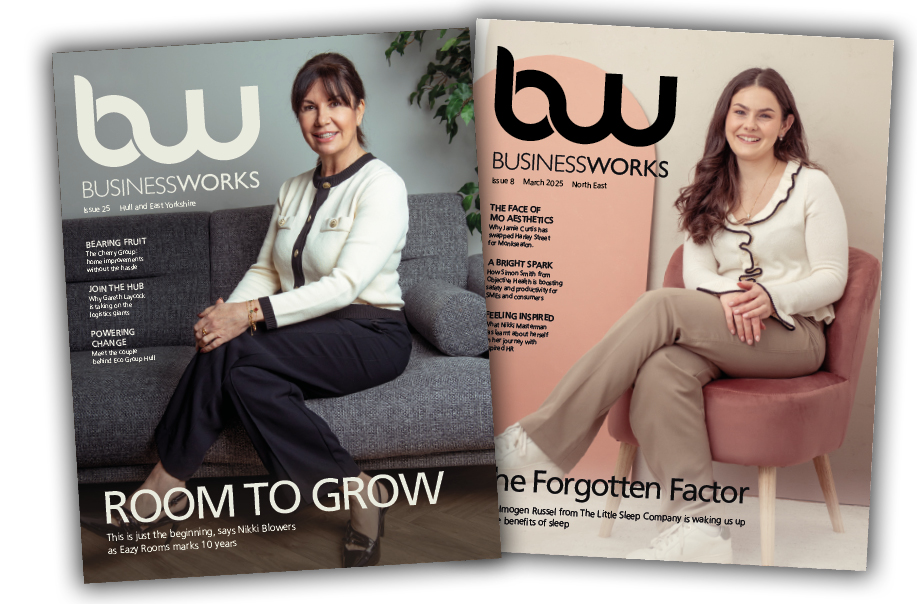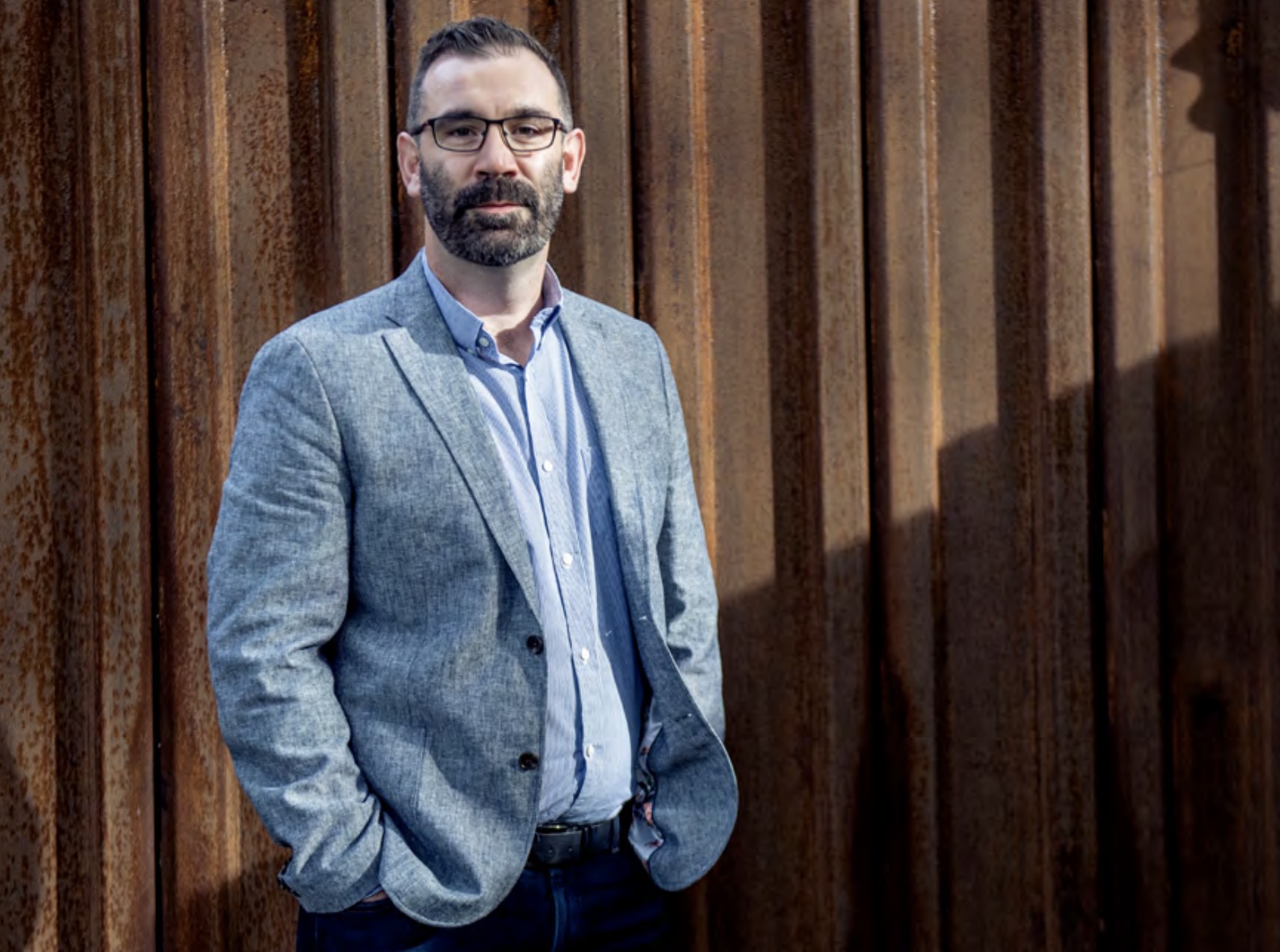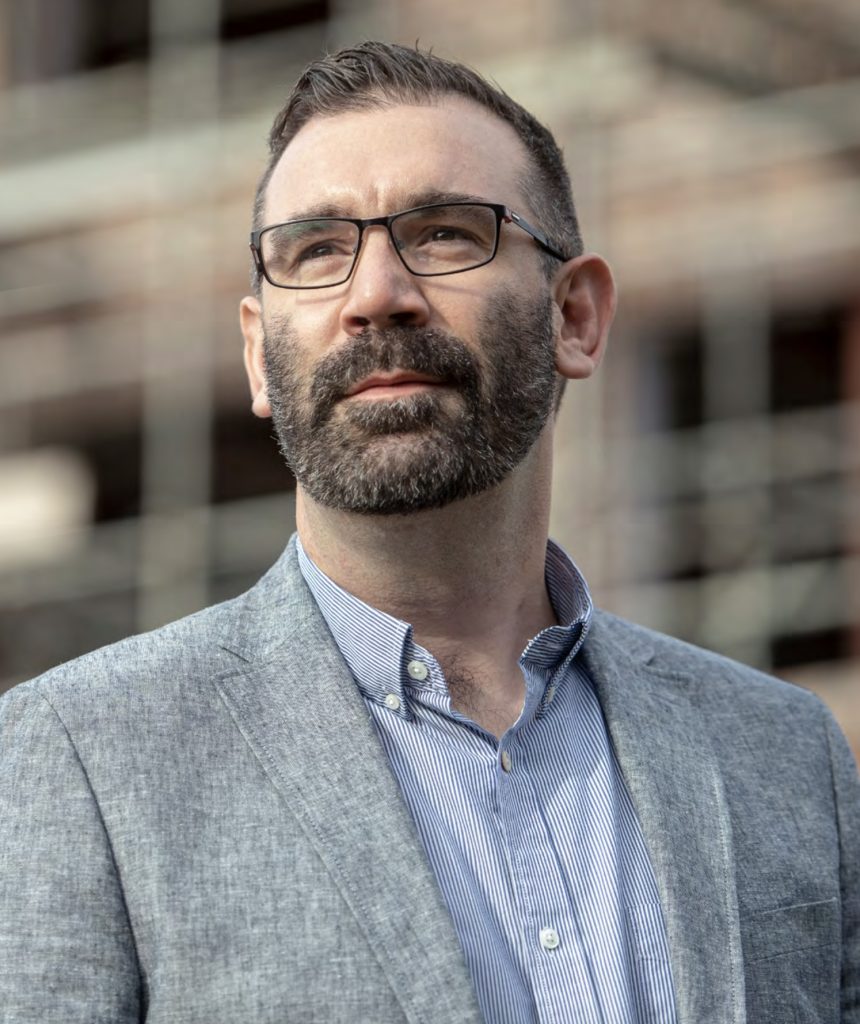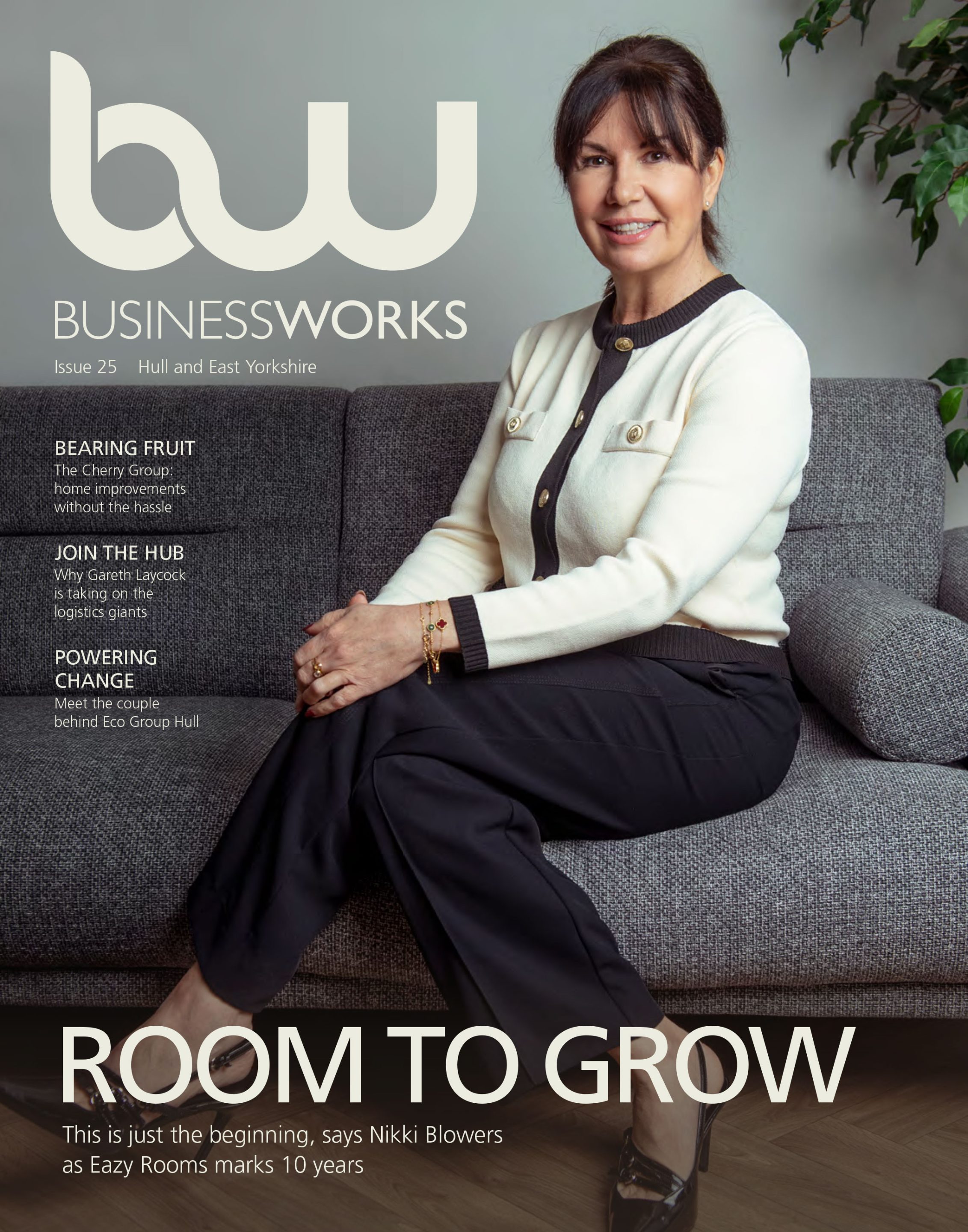John Good Group CEO Adam Walsh tells Sam Hawcroft how the sixth-generation family business is focused on reinvesting in its own operations – as well as its charitable foundation
Adam Walsh was always the team captain in school sports – and leading people to success has been his ambition ever since.
He’s always had an entrepreneurial spirit, not that he likes to call it that – entrepreneurs never do – but since graduating with a marketing degree in 2006, Adam has been a leader in everything he’s done.
“I’ve always been interested in growth and change,” he says, “and taking on responsibility or authority has always been something that has come naturally, regardless of in work, life or sport. I think those ingredients have been in me for a long time, and if I’m honest, I thrive in those situations.”
When he graduated, he was drawn to the oil industry and says he was fortunate to join the Leeds-based family business, the Bayford Group, which was on a big growth trajectory. An early mentor was its chief executive, Jonathan Turner, once described by the Yorkshire Post as the county’s “swashbuckling entrepreneur”.
“It was a brilliant environment to learn,” adds Adam. “They were superb at giving young people opportunity. Throwing people in the deep end was a big part of their culture. And, after a couple of setbacks, I learned confidence in my ability to think and work out problems and really try to go for it and do something a bit different.”
Adam moved through the ranks in several marketing and commercial roles before his “big break” – being appointed director of the Right Fuelcard Company in Leeds, later becoming group managing director and then chief executive.
“That was really my first leadership role,” he says. “The business was in a bit of a mess when I first got involved. They’d bought a business but hadn’t made the most of it and needed someone to turn it around. For me, it was continuing on from the Bayford environment – that entrepreneurialism, throwing people in the deep end – and I was able to properly leave a mark on a business for the first time. We went on an amazing run. It’s definitely, to this point, a career highlight.”
How did Adam achieve this turnaround? Crucially, he had a vision for the business, which was the starting point, along with identifying the strengths of the people working within it, which in turn allowed him to pinpoint the gaps.
“One of the crucial parts of building a high-performance team is to get people to be brilliant at one thing rather than being OK at a few,” Adam says. “We brought in sales and marketing infrastructure and made a significant investment into service and account management – but making sure that everybody aligned with the vision was the secret sauce in all of that, ensuring that everybody contributed up the line and that everyone was incentivised in the same way.”
A steep curve followed, during which the company went from about 20 staff members to nearly 100 and to making about £5 million profit before acquiring sister companies in the Bayford Group and becoming a £300 million turnover company almost overnight. It was eventually acquired by the French company Edenred, with whom Adam worked for just less than a year.
“It’s fair to say PLC life wasn’t for me,” he says. “It just wasn’t an environment that got the best out of me. I then moved roles to another organisation, looking for something that gave me the same feeling as I got from the Right Fuelcard Company, but, to be honest, I didn’t find it. That was when the entrepreneurialism started kicking in, and Driving Down was founded.”
Adam teamed up with some former colleagues to launch firm Driving Down, a fuel consultancy based in Leeds. Despite this, Adam still rejects the entrepreneur tag. “I don’t think of myself as an entrepreneur. I have entrepreneurial tendencies, but I don’t mind working for other people. A lot of entrepreneurs say one of the worst things they could think of is working for someone else. I don’t have that fear. My drive is about working with people, helping them go on a journey.”
After a year with Driving Down, things had bedded in, the business was growing well, and Adam had taken a less hands-on role – this is when the opportunity to join the John Good Group came along.
Major owner Tim Good and chairman Stewart Oades are men after Adam’s own heart – they knew what they wanted and what they didn’t. “Tim and Stewart were looking for a chief executive who wanted to take hold of this business,” says Adam. “They were very clear on that. They’re both passionate about certain elements but, ultimately, they wanted me to grab the business and run with it. That was really important.”
The role suited Adam down to the ground because it was a role that combined purpose and performance – the goal was to ensure the company went from a sixth-generation business to a seventh-generation, as well as reinvesting profits back into its operations and its charity arm, the Matthew Good Foundation.
“The business is very focused on its social impact, so it’s a different and powerful way to work,” says Adam. “That appealed strongly. Last but not least, it was a business in a similar position to the Right Fuelcard Company in that, operationally, they were very competent, but they lacked some of my skill sets: strategic planning, sales, marketing, and some commerciality across the group’s businesses. When you put those things together, it was the perfect opportunity for me.”
When Adam joined the John Good Group – whose diverse companies include travel, maritime, warehousing, logistics, and property divisions – in January 2022, it was during a period of change.
“The group had recently sold its largest trading business, Good Logistics, which was about 200 of the 300 headcount of the group at the time, so it was a pivotal moment in our history. Not only did the trading business go, but all the group’s central infrastructure went too ¬– the leadership team, finance, HR, IT, marketing, etc. When I landed at the group level, I was employee number three. I describe it almost as the UK’s oldest start-up because it had 190 years of history while being a blank canvas to rebuild and align around the vision of Tim and the board of directors.”
Nearly two years on, things are moving in the right direction, says Adam. “The early signs are good. Is it perfect? Absolutely not. But are we on the right path? Yes.”
The impact of the pandemic and Brexit have inevitably been mixed – the maritime division emerged relatively unscathed because it was part of the supply chain, but the travel business was “decimated”, and the haulage business has felt the effects of the rise in energy and oil prices.
The group’s social impact is something Adam is keen to highlight. “There are a lot of better-known businesses in this region than the John Good Group, and I feel we’re off people’s radar, but that’ll change in time. We’re one of only a few organisations whose whole purpose is directly aligned to deliver additional profit straight back into the business or into charitable endeavours via the Matthew Good Foundation. It’s a thrive and grow strategy, with the results of that meaning we can increase the scale of our social impact, Tim’s ultimate aim.”
The Matthew Good Foundation, set up 11 years ago, is named after Tim’s brother, who died aged just 32 after collapsing less than a mile from the end of the 2011 Humber Bridge half-marathon. For understandable reasons, its focus in the early days was on sports medicine, but it has evolved to encompass communities, the environment, and helping support initiatives in developing countries – the three things that “excite and energise Tim”, Adam says.
The key to “putting a rocket” under the foundation’s social impact is the involvement of other third-party businesses, who can use it as a platform to achieve their own philanthropic ambitions. It’s an area Adam and the team are keen to push in the coming year.
“My job is to make sure we’re growing successful businesses that have profile – people understand why we’re here and what we’re trying to do,” Adam adds. “All of that helps to build a greater awareness of the John Good Group and the Matthew Good Foundation. That doesn’t just mean externally. Internally, you also need the teams to understand their roles and make sure they’re aligned with our purpose and level of ambition. Once everyone understands their roles, you can start to accelerate and move things forward at pace.”
The third important “P”, after people and performance, is “planet”, and John Good Group is now operationally carbon-neutral – not an easy thing for the industries it operates in. Things are by no means perfect on this score, though, Adam admits. “We’ve got several reduction workstreams that we’re starting to roll out over the next couple of years to reduce our carbon impact. We’ve also got a lot of work to do with our customers because while we are operationally carbon neutral, our non-controllable scope three emissions are 100 times the group’s operational carbon impact.”
What about the fourth P – planning? Perhaps surprisingly, Adam isn’t someone who lives and dies by spreadsheets and to-do lists. “I have a strong sense of direction, but I’m lighter on detail. I have people around me who are heavier on detail in their fields, and that’s why the team works. The team are clear on the plans. We do a process every year to update our budgeting and strategic plans. That brings together all the detail and planning by function and operation. But me, I’m quite a high-level guy. I’m about themes. I love turning strategy into operations and the change management that comes with that. But it’s the teams that handle the detail.”
So… what’s Adam’s vision for the next few years? “I think we’ll have two or three divisions in their own right that will be bigger than the group is today. I also think we’ll have diversified further and look at the emerging markets. Renewables would be a key one, but our strengths in B2B service businesses are also transferable.”
And it may seem a while ahead yet, but Adam is already thinking of the “200-year view” – the next big anniversary for the John Good Group in 2033. Now that’s visionary…





